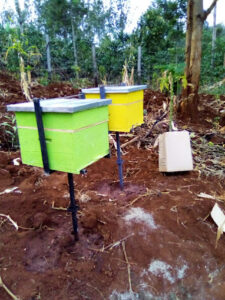Beekeeping, or apiculture, is a growing agricultural practice in Kenya, offering both rural and urban communities a sustainable source of income. With the country’s diverse climatic zones, ranging from arid and semi-arid regions to tropical forests, Kenya provides a favorable environment for beekeeping. The practice is particularly common in counties like Kitui, Baringo, and West Pokot, where local communities have integrated traditional and modern beekeeping methods. Traditional beekeeping involves the use of log hives, while modern practices utilize more efficient Langstroth and top-bar hives, which yield higher honey production.

Beekeeping in Kenya contributes significantly to environmental conservation and the economy. Bees play a crucial role in pollinating crops, which enhances food production and biodiversity. This makes beekeeping a valuable activity, especially for small-scale farmers who benefit from improved crop yields in addition to harvesting honey. Additionally, the practice requires minimal land and investment, making it accessible for many Kenyans.
Honey, the primary product of beekeeping, has both economic and nutritional value. It is a natural sweetener, rich in antioxidants, vitamins, and minerals, making it a popular health supplement. Honey’s antimicrobial properties have long been valued in traditional medicine for treating wounds and respiratory conditions. Beyond direct consumption, honey is used in producing cosmetics, soaps, and various skincare products due to its moisturizing and healing properties. This versatility has made honey a sought-after commodity in both local and international markets, providing beekeepers with a reliable source of income.
Moreover, other by-products of beekeeping, such as beeswax, propolis, and royal jelly, have significant economic potential. Beeswax is commonly used in candle-making, cosmetics, and pharmaceuticals, while propolis is known for its medicinal properties. The demand for these products continues to grow as consumers increasingly seek natural and organic options.
Beekeeping in Kenya not only supports livelihoods and food security but also contributes to the country’s environmental conservation efforts. With continued training and support, the industry holds great potential for further development, offering Kenyans a sustainable way to earn income while preserving their natural ecosystems.